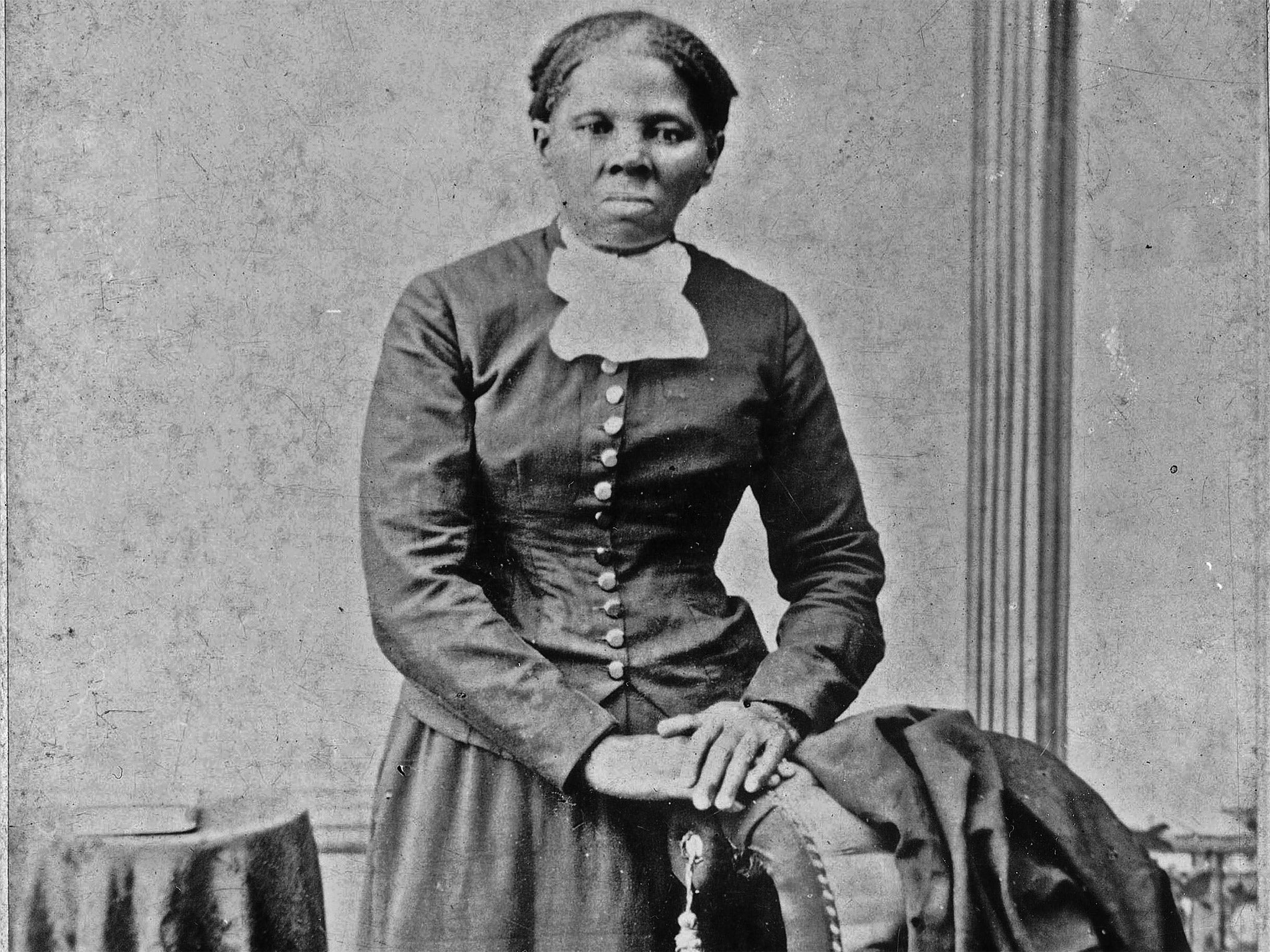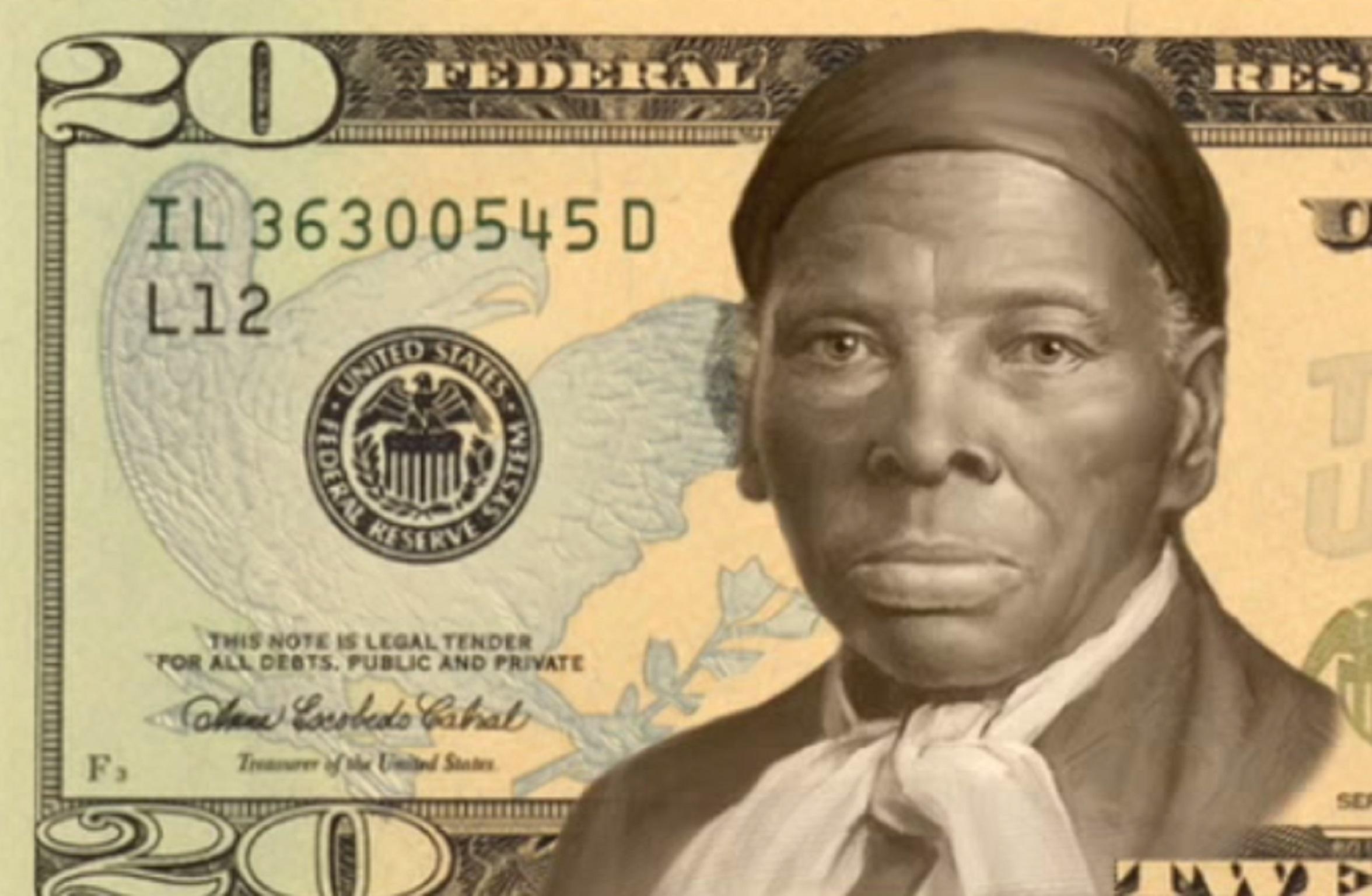Ernestine “Tina” Martin Wyatt: Descendant of Harriet Tubman says putting slave abolitionist's face on $20 will not fix plight of black Americans
Exclusive interview with great great great grand-niece of US icon

A campaign to have an American woman placed on the $20 bill recently selected slave abolitionist and equal rights campaigner Harriet Tubman as the person the public wants to replace the face of President Andrew Jackson.
The group Women on 20s launched the campaign to have pioneering women recognised and asked the public to vote on who they believed should be honoured with their face being represented on the currency note. Now, the organisation is lobbying the government to take up their suggestion.
More than 600,000 people voted online, with abolitionist Ms Tubman winning 38 per cent, beating activist and former First Lady Eleanor Roosevelt, civil rights icon Rosa Parks and Native American Wilma Mankiller.

Ms Tubman, who grew up in Maryland, has a number of descendants, one of whom is Ernestine “Tina” Martin Wyatt, an artist in Washington and who said she is the abolitionist’s “great great great grand-niece”.
The Independent had the opportunity to put several questions Ms Wyatt about her celebrated, late relative and the campaign to put her face on the $20.

What was it like growing up knowing who your great great aunt was?
“Although the world regarded her as a celebrity larger than life, to us she was a family member that was determined enough to overcome the odds to make life better for us, herself, and others; that is what families do.
“I did not talk much about my relationship to her with others until I became an adult and was interested in all history.”
How has it it impacted you? Has it been a benefit, or a burden to bear?
I reread her book that she dictated and realised her legacy to me, her faith in God and belief in Jesus Christ as our saviour. In this way she was a woman of grace leaning on God being faithful and making the decision to “Walk by faith, and not by sight.”
“If she had allowed the facts of her circumstances to dictate to her instead of the truth of Gods’ word she would not have been successful.”
Do you think most people are aware of the contribution she made to US society?
“I believe that my generation and generations before was aware primarily because we were actively in the fight for civil rights and it was nearer to the time of the end of slavery.
“So, although it was not taught in schools, it was taught in your families, homes, churches, and community organisations. Ensuing generations are less aware because the focus is now different. In the non-black communities it is even less or non existent.
“Aunt Harriet did much more than free herself and others from the bondage of slavery; she was interested in the freedom from any type of bondage that would demean and denigrate a person whether through thought, deed, or state of being. And she continued to follow this belief that influenced her actions while being free.”
Do you think getting her face on the $20 bill will make any difference?
“If you are talking about making a difference in how black people are treated or perceived in this world, no.
“The value of a twenty-dollar bill will still be the value of a twenty dollar bill, black people will continue to be treated like black people are treated, on and on….
“Most people won’t care that she is on the twenty so long as the value holds. If the value goes down it won’t be because the economy is shaky it will be because of that freedom seeker being on “our” money, the jokes will abound. That’s when you will see racist attitudes coming out.”
Do you think it is recognition of her accomplishments?
“The process for getting “on the money” is interesting, especially since Aunt Harriet had to fight so hard for a pension that what well deserved for her service in helping this country and was denied that right. It would be interesting to know exactly how many people weighed in and what demographic solidified Aunt Harriet’s win.
“You know most people only know Aunt Harriet as having led slaves to freedom, which is honourable and noble, and in itself makes her a worthy choice for the twenty dollar bill, but she did so much more than that.
“She was a nurse, a spy, a business women, an entrepreneur, a humanitarian and just a caring person. I believe in her mind, she would have viewed her accomplishments after slavery as being as important as her accomplishments during slavery.
“I don’t think she would have differentiated it at all. What she did during slavery and after slavery were both designed to help people. Others can judge, but I just don’t think it would have mattered to Aunt Harriet whether others thought it to be important or not for she was given a vision by God and followed it.
“In spite of all of this Aunt Harriet would be far happier and sacrifice this honour (of sorts) if people of all races treated each other with love, honour, respect and dignity.”
More than 150 year after the US outlawed slavery, why are the lives of African Americans so difficult and challenged?
“The lives of African American’s is so challenged because of never having been fully embraced as a full and equal partner in the American experiment.
“This is continually put before the general population at every opportunity, which just perpetuates that particular human condition that marginalises, underestimates and trivialises.
“Also it is perpetuated through the willingness of other people to set up and believe stereotypes in order to feel they are superior; this began in the Reconstruction Era when freed blacks began to debunk the oppressive attitudes that began in slavery and meant to keep us oppressed.
“There is no other group in America where their spirit, soul, body, and culture were attempted to be annihilated. There is no other group, where names were changed, and and the ideas and attitudes of forming and perpetuating families and keeping families, broken, history lost except African American’s.
“You think things are different and they are to some degree i.e. slavery has been outlawed, but look how hard people fought to stop that from happening. I know that more people fought just as hard to make that happen, but the key is why did they have to fight in the first place?
“Can you name me one other group that is referred to in the Constitution of the United States of America that is considered 3/5s of a human. No wonder African American’s are not fully embraced when the highest document of the land does not embrace you as a full part.”
What should the US do to try and create more equality?
“Let’s just think for a moment about some of the actions of our country and what we have done to help those that have been treated unfairly.
"We provided reparations for Japanese American’s that were put in detention camps during the WWII period, we signed treaties (although most not honoured) with Native Americans' after land was stolen, we helped to rebuild japan after WWII along with Europe.
"We have invested billions in the middle east to rebuild after the various wars etc.
“Unfortunately there will be no reparations for the decedents of slaves ripped from their home lands, names stolen, families and torn apart because deemed as having less value than a bombed out building.”
What practical steps can be taken?
“1. Free college tuition for every African American, since education was one of the things denied to keep us oppressed.
2. Reparations for the historic trauma that still scars not unlike the masters whip.
3. Calculate the dollar value of slavery to the American economy and distribute the wealth accordingly.
4. More apprentice programmes for those who are more trade oriented
5. Changing the constitution to recognise African Americans as a Human Being.
6. A car in every garage, a chicken in every pot.
7. Forty Acres and a mule or its today’s value."
Join our commenting forum
Join thought-provoking conversations, follow other Independent readers and see their replies
Comments